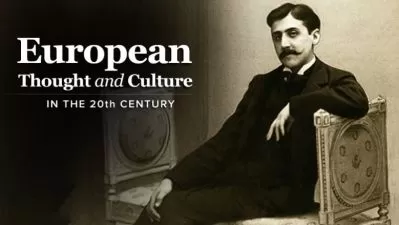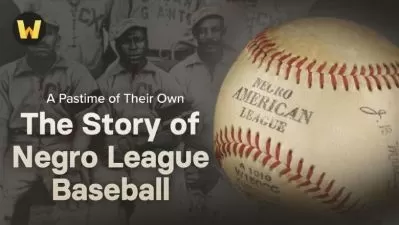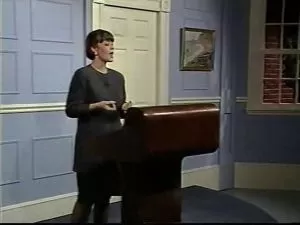History of England from the Tudors to the Stuarts
Robert Bucholz
24:18:40
Description
During the 229-year period from 1485 to 1714, England transformed itself from a minor feudal state into what has been called "the first modern society," and emerged as the wealthiest and most powerful nation in the world. Those years hold a huge story. The English people survived repeated epidemics and famines, one failed invasion and two successful ones, two civil wars, a series of violent religious reformations and counter-reformations, and confrontations with two of the most powerful monarchs on Earth, Louis XIV of France and Philip II of Spain.
But they did much more than survive. They produced a marvelous culture that gave the world the philosophy of John Locke, the plays of Shakespeare, the wit of Swift, the poetry of Milton, the buildings of Christopher Wren, the science of Isaac Newton, and the verse of the King James Bible.
And despite the cruelty, bloodshed, and religious suppression they visited on so many, they also left behind something else: the political principles and ideals for which we—and so many of them—would work and die, and on which we Americans would build our nation.
"A Terrific Story"
Professor Robert Bucholz presents a sweeping, 48-lecture course on one of the most intriguing times in modern history. England's changing social, economic, religious, and political structures unfold while first the Tudors (1485–1603) and then the Stuarts (1603–1714) establish their monarchies, and you hear the facts behind dramatic stories:
- Henry VIII's wives and his fear that a woman would rule
- The reigns of Henry's three children: Edward VI, "Bloody Mary," and popular Elizabeth I
- James I's insistence that the monarchy be stronger than Parliament
- Charles I in his best attire, walking to his own beheading
- James II believing Britain couldn't live without him
- William III, invited by the British to invade their country
- Queen Anne's War and her immense popularity
- The great, tumultuous city of London
- Continuing religious persecution and change, including the Reformation and the relationships between the royalty and the pope
- Change through the onset of the printed word
- Problems of law and order, witchcraft, the Poor Law, and the rise of Puritanism
- The blossoming of Elizabethan and Jacobean culture in art, music, and literature.
You learn about great works of art, important discoveries, castles, and coronations. And with the rich history of England's monarchs you also learn how the English people were born, worked, played, worshipped, fell in love, and died.
You also discover answers to intriguing questions such as:
- Why have all Britain's glory days been under women monarchs?
- Why did experimenting with a Republic lead to the monarchy's return?
- Why was Thomas More executed?
- Why do rebellion and war continue in Ireland and Scotland?
- What has been England's ongoing relationship with Wales?
Professor Bucholz presents this history in an intimate way that draws you into unfolding events, weaving quotes from parish records, diaries, letters, newspapers, and the political press into his own narrative.
"This is," he says simply, "a terrific story."
AudioFile© magazine comments: "Professor Bucholz intertwines descriptions of court intrigue with portrayals of its effects on those governed, from the merchant to the tenant farmer to the beggar. Bucholz's lecturing style engages his students in the realities of the time with empathy, data, and humor. … The listener will find no dry history here, but a colorful album of real peoples' memories."
Professor Bucholz—whose work has been solicited and commented upon by His Royal Highness, the Prince of Wales—is a noted expert on the English court and royal household, and a frequent media commentator on British history and the Royal Family.
Two Strong Queens and an Execution
This is a course filled with drama.
With Professor Bucholz, you find yourself in the hallway outside the bedchamber of Queen Anne on the night of July 27, 1714, next to the loyal servants who clearly hear the sounds of their beloved monarch weeping.
That day, the queen had been left with no choice but to demand the resignation of her Lord Treasurer, Robert Harley, Earl of Oxford, the greatest politician of his era and the last of the original ministers she had chosen when assuming the throne.
It is a frankly stunning moment and a vivid portrait of Queen Anne. This plain and sickly woman lacked the star quality of Elizabeth. Little had been expected of her when she took the throne 12 years earlier; yet she nevertheless forged the most successful reign of any Stuart monarch, becoming a strong and effective queen with an instinctive love for and understanding of her people.
Professor Bucholz explains that the two most successful reigns of this period were those of women, Queen Anne on the Stuart side, and, on the Tudor side, Elizabeth—the "Virgin Queen." Moreover, they did this in the face of a century of belief in the Great Chain of Being, the immutable hierarchy in which every person at birth had a clearly defined and accepted rank, To challenge it in any form was a grave sin.
Professor Bucholz takes you to the floor of Parliament during the contentious debate over the fate of Charles I, with Oliver Cromwell thundering, "I tell you, I will cut off his head with the crown on it!"; then to the king's final meeting with his youngest sons where he asks them to preserve the monarchy; and, finally, to the execution itself, the march to the block taking Charles directly underneath a painting of James I on the ceiling of Whitehall Palace—his own father portrayed as a deified monarch.
This was far more than great theater. For England had, for the first time, "judicially and publicly murdered" its monarch, literally "lopping off [Earth's] highest link in the Great Chain of Being" and created, for the only time in its history, a Republic.
Repercussions across the Ocean
It was during this time England became a world power and, in the process, established its American colonies. That culture of early-modern England is our root culture, and many of our institutions, laws, customs, and traditions can be traced back to that time and place.
In particular, the civil wars, revolutions, and parliamentary and legal battles described in this course led to the establishment of a constitutional monarchy, rule of law, the rights to trial by jury and habeas corpus, the first modern political parties, and a kind of popular participation in politics that would lead, ultimately, to democracies on both sides of the Atlantic.
"For these reasons," states Professor Bucholz, "this is not only an interesting course in its own right, it is also one with direct relevance for 21st-century Americans."
More details
User Reviews
Rating
Robert Bucholz
Instructor's CoursesDr. Robert Bucholz is Professor of History at Loyola University Chicago, where he has taught since 1988. He earned his B.A. in History from Cornell University and his D.Phil. in Modern History from Oxford University. Before joining the faculty at Loyola University, Professor Bucholz taught at numerous universities, including Cornell University; California State University, Long Beach; and Loyola, Marymount University. He is a Fellow of the Royal Historical Society. Among Professor Bucholz's numerous teaching awards are the Sujack Award for Teaching Excellence, the highest such award presented by the Loyola College of Arts and Sciences. On two occasions, he received the Honors Program Faculty Member of the Year Award. At Loyola University, Professor Bucholz teaches courses on Early Modern London, Early Modern England, and English Social History. He is the author or coauthor of books on English history, including Early Modern England: A Narrative History and The Augustan Court: Queen Anne and the Decline of Court Culture. Professor Bucholz is also the project director of the Database of Court Officers, which contains the career facts of every person who served in the British royal household from the Restoration to the death of Queen Victoria.

The Great Courses
View courses The Great Courses- language english
- Training sessions 49
- duration 24:18:40
- English subtitles has
- Release Date 2023/06/06
















